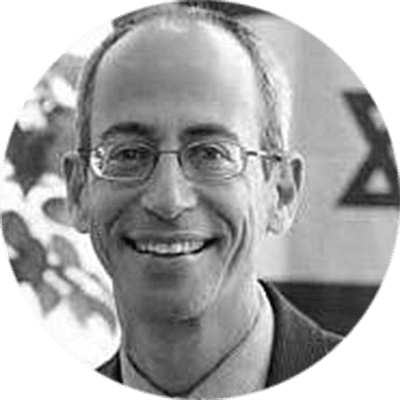Teaching History: Why the Facts Matter
I have had the privilege for the past several years of heading up the Israeli division of the education, research, and documentation unit of the Holocaust Claims Conference. We fund Holocaust museum exhibits, teacher training, intensive educational seminars for students and IDF soldiers, archives, research, and films in Israel. Our mission is to seek a small measure of justice for Holocaust victims and ensure that their story is told accurately for generations to come.
In my adult years, I’ve developed a passion for learning history. When I was a child, I didn’t care much for history; I didn’t see the value of memorizing names and dates. As I’ve gotten older, I now understand why, even in the age of the internet, knowledge of key facts, dates, individuals, and events matters and is necessary (in addition to higher-order skills like understanding chronology, causation, and context).
I was reminded recently of the importance of historical content knowledge from a study published seven years ago by the University College London Centre for Holocaust Studies. Researchers surveyed 8,000 students ages 11-18 about what they know and understand about the Holocaust. For about 25 years, the Holocaust has been part of the national curriculum in England. The researchers discovered that even after studying the Holocaust, students still lacked some basic historical content knowledge. These gaps, in turn, fostered harmful misconceptions about anti-Semitism, the causes of the Holocaust, and Jews in general.
For example, when students were asked who was responsible for the Holocaust, a good proportion expressed a Hitler-centric view of complicity. Fewer than half referred to other potential perpetrators like the SS, Adolf Eichmann, or Einsatzgruppen death squads. Younger students, in particular, didn’t understand that the Nazis were a broad-based political party with widespread popular support and not some small yet powerful group that mindlessly carried out orders issued by Hitler.
Fewer than 5% of the students held that the German citizenry played a role in the genocide. To quote the UCL study, “it was as if the Holocaust happened around the German people, with events unfolding without their involvement or engagement.” Students believed that Germans were either brainwashed, intimidated or simply unaware of the mass killings of Jews and therefore not culpable.
The vast majority of students localized the Holocaust geographically to German soil thinking that mass murder took place in Germany, not Poland (approximately 3 million Jews perished in Poland whereas an estimated 165,000 Jews died in Germany). Students had little awareness that the Holocaust was a continent-wide attempt to exterminate Jews from Vichy-France to the Soviet Union.
Students believed, for the most part, that all victims were treated the same (Jews, gays, Roma). They overestimated the pre-war Jewish population and the Jews’ influence on society and accepted stereotypical myths about Jewish power; they underestimated the number of Jews murdered. Furthermore, students had no sense of the role that collaborators played—whether these were the governmental allies of the Nazis, police, military authorities, local government authorities, or civilians who assisted in the roundup, deportation, expropriation, forced labor, or murder of Jews.
Why does solid content knowledge matter? If students believe that Hitler simply issued orders that were executed, if they fail to understand the popular support of Nazis among all sectors of society, they miss out on a more sophisticated understanding of how extremist ideas take hold across societies.
If students overlook the geographic scope of the Holocaust, they will likely fail to grasp the Jewish specificity of the Holocaust whereby, throughout Europe, the Nazis and their collaborators tried to murder every Jewish man, woman, and child in towns, villages, and cities. A gap in knowledge of the map of Nazi-occupied Europe will lead students to believe that only Germans were complicit and exonerate the rest of Europe. Without this basic knowledge, students will not even know to ask how in country after European country, ordinary people collaborated in the murder of their neighbors. And without asking that question, they will not have a good understanding of how something similar could take place today.
The results of the UCL study demonstrate that it is not enough to know that Jews were victims and that Hitler was a powerful dictator; solid historical knowledge is imperative. Without it, students will be unable to address basic questions about who was responsible for the development and implementation of the Holocaust, how the perpetrators succeeded, why Jews were targeted, and how Jews responded. They may end up reducing the Holocaust to a tale of good and evil without exploring the more troubling aspects that bear on contemporary society today (how in a modern, democratic, educated country could this happen?). And worse, they may reinforce certain stereotypes and misconceptions about Jews.
The bottom line is that even in an era where information is readily accessible on the internet, it’s important to possess historical knowledge. It’s important to know the facts. If we become knowledge nihilists, we do so at our own peril.



Perhaps, Rabbi Buckman’s most important point is that the problem is not merely that people do not know about the Holocaust but that for various reasons they are misinformed about it. It is easier for certain people and certain countries to buy into narratives that make them feel better and unfortunately Holocaust educators have not managed to prevent this from happening so far. See Dara Horn’s book People Love Dead Jews to get the enormity of this problem.